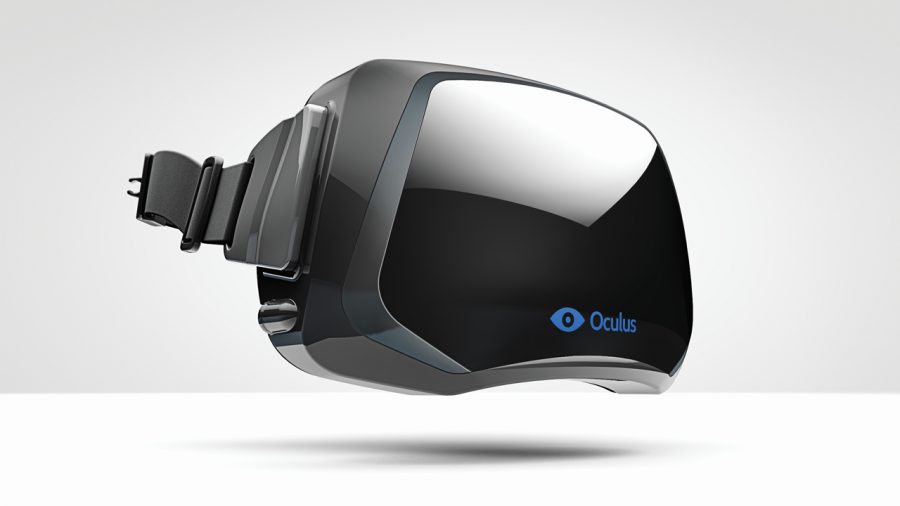Welcome to Tech Thoughts! This blog is a place for me to discuss all things technology related (and some things non-technology related as well). It will contain my opinion about various pieces of technology, and just general important technology information.
Before we begin looking at the current technology news, it is essential that we look ahead towards the future. The future of technology holds a number of exciting new technology ranging from virtual reality to reusable rockets. Over the coming few posts, I will take a through look at some of the various pieces of technology that could be looming in our near futures.
The six topics that we will run through are:
Virtual Reality, Quantum Computing, 3-D Printing, Driverless Cars, Genetic Engineering, Reusable Rockets
We will go through two topics per post with our first two topics being Virtual Reality and Quantum Computing.
Virtual Reality:
While VR (Virtual Reality) technology is already widely available for consumer use, in the future we can expect a number of improvements. Currently, the two largest competitors in the VR industry are the HTC Vive and the Oculus Rift. The Vive costs just under $800 and has just recently been released to the public. The Rift costs $600. Several other competitors also exist including the Samsung Gear and the newly announced Play Station VR. However, there are still several problems that the Virtual Reality industry needs to overcome because the use of VR devices becomes ubiquitous.
Firstly, VR (for the personal computer) requires unrealistic specs that a very small percentage of the population possesses. The research company Gartner estimates that less than one percent all current computers have the capabilities required to properly run Virtual Reality technology. Not only do customers currently have to spend $600 – $800 for VR technology, but also dish out large amounts of money to be able to upgrade their computers with high end graphics / video cards. There have also been several instances of consumers developing headaches and queasiness after the use of VR devices.
To me it seems like the thing VR needs the most is simply more time. Over the coming years, we can expect to see cheaper VR devices that are able to run on less expensive computers. We can also expect to see the number of VR entertainment options increase as software companies grow more accustomed to working with VR development options.
Quantum Computing:
Many believe that Quantum Computing is the future of the computer hardware industry. Quantum Computing could make it possible to create personal computers that are more possible than the largest supercomputers of today. It could also make it possible to solve a diverse set of problems ranging from chemistry to artificial intelligence. But what is quantum computing and how does it differ from current computing methods?
Essentially, current computing methods are based on binary methods where computers process “bits” of information that are either 0 or 1. These bits are the backbone of every single computer program from Photoshop to Excel. However, quantum computing is based on “qbits” which are values that can represent both 0 and 1 at the exact same time. These qbits are subatomic particles and make it possible for computers to represent a wide variety of values simultaneously. Not only does the use of qbits decrease the memory used to complete a number of operations, but also it is expected to decrease time used for various tasks exponentially. Arrays of thousands of these qbits could make solving near impossible problems today, a piece of cake in the future.
The future of quantum computing is clearly much more uncertain than the future of VR. There is fierce competition between several multi-billion dollar technology companies to create the first working personal quantum computer. Microsoft, in particular, has been working on research and development of a quantum computer since 2006.
End:
Hopefully. that was a reasonably thorough description of two major technological revolutions that may occur in the near future. Thanks, and expect more tech – related news soon!































![AI in films like "The Brutalist" is convenient, but shouldn’t take priority [opinion]](https://hilite.org/wp-content/uploads/2025/02/catherine-cover-1200x471.jpg)













































![Review: “The Immortal Soul Salvage Yard:” A criminally underrated poetry collection [MUSE]](https://hilite.org/wp-content/uploads/2025/03/71cju6TvqmL._AC_UF10001000_QL80_.jpg)
![Review: "Dog Man" is Unapologetically Chaotic [MUSE]](https://hilite.org/wp-content/uploads/2025/03/dogman-1200x700.jpg)
![Review: "Ne Zha 2": The WeChat family reunion I didn’t know I needed [MUSE]](https://hilite.org/wp-content/uploads/2025/03/unnamed-4.png)
![Review in Print: Maripaz Villar brings a delightfully unique style to the world of WEBTOON [MUSE]](https://hilite.org/wp-content/uploads/2023/12/maripazcover-1200x960.jpg)
![Review: “The Sword of Kaigen” is a masterpiece [MUSE]](https://hilite.org/wp-content/uploads/2023/11/Screenshot-2023-11-26-201051.png)
![Review: Gateron Oil Kings, great linear switches, okay price [MUSE]](https://hilite.org/wp-content/uploads/2023/11/Screenshot-2023-11-26-200553.png)
![Review: “A Haunting in Venice” is a significant improvement from other Agatha Christie adaptations [MUSE]](https://hilite.org/wp-content/uploads/2023/11/e7ee2938a6d422669771bce6d8088521.jpg)
![Review: A Thanksgiving story from elementary school, still just as interesting [MUSE]](https://hilite.org/wp-content/uploads/2023/11/Screenshot-2023-11-26-195514-987x1200.png)
![Review: "When I Fly Towards You", cute, uplifting youth drama [MUSE]](https://hilite.org/wp-content/uploads/2023/09/When-I-Fly-Towards-You-Chinese-drama.png)
![Postcards from Muse: Hawaii Travel Diary [MUSE]](https://hilite.org/wp-content/uploads/2023/09/My-project-1-1200x1200.jpg)
![Review: "Ladybug & Cat Noir: The Movie," departure from original show [MUSE]](https://hilite.org/wp-content/uploads/2023/09/Ladybug__Cat_Noir_-_The_Movie_poster.jpg)
![Review in Print: "Hidden Love" is the cute, uplifting drama everyone needs [MUSE]](https://hilite.org/wp-content/uploads/2023/09/hiddenlovecover-e1693597208225-1030x1200.png)
![Review in Print: "Heartstopper" is the heartwarming queer romance we all need [MUSE]](https://hilite.org/wp-content/uploads/2023/08/museheartstoppercover-1200x654.png)


